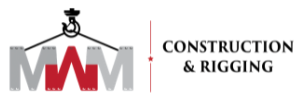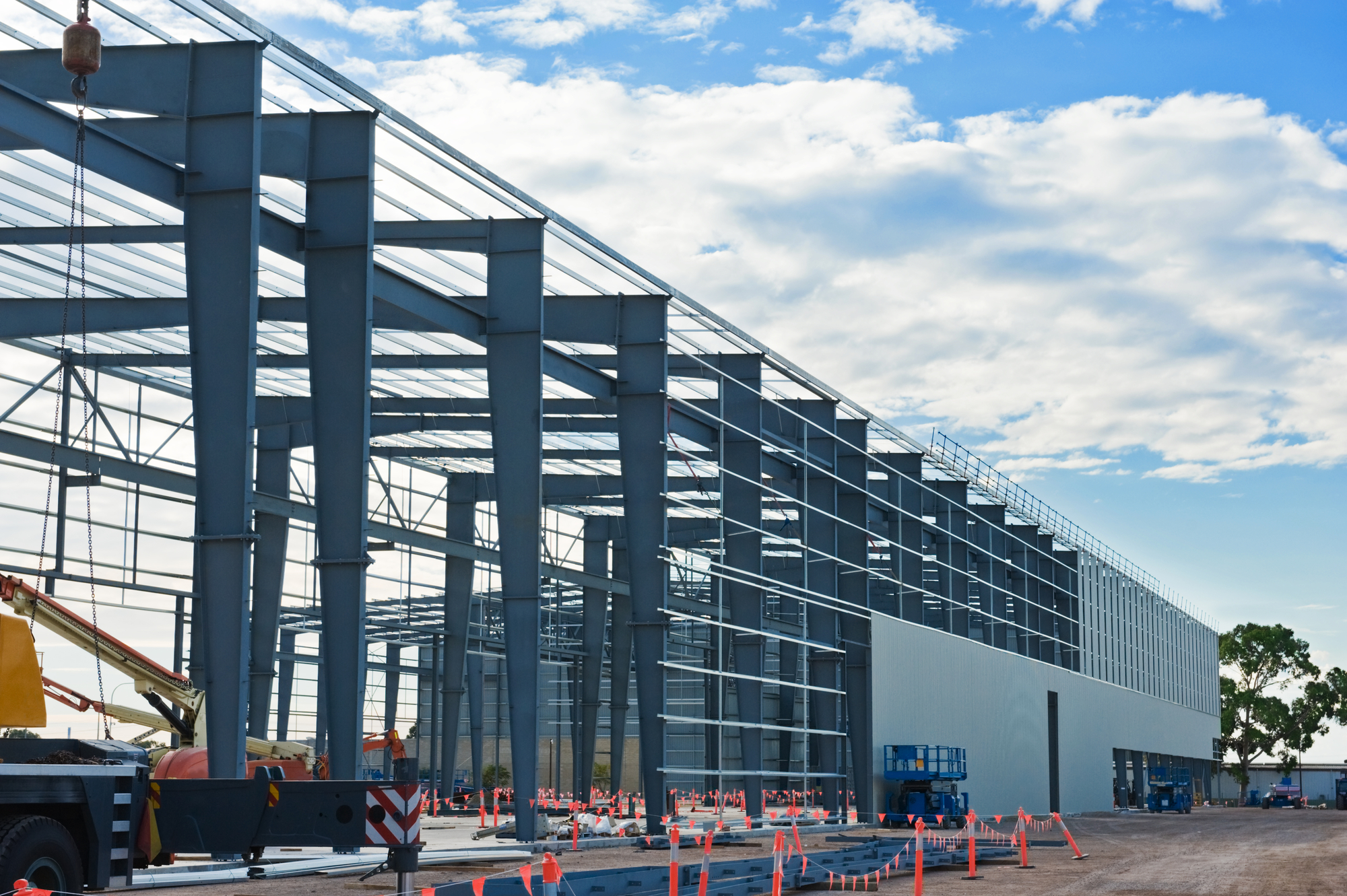Industrial Construction
Get a Quote
What is Industrial Construction?
When you think of construction, you probably think of building houses and business buildings. That is a huge part of construction, but there are several other types of construction that a company can specialize in. Industrial construction is a huge sector of construction and despite a common misconception, it is different from commercial construction. Industrial construction refers to the construction of a business that builds and produces manufacturing goods. These businesses can be manufacturing plants, power plants, or food processing plants.
Commercial construction companies build things like office buildings, a music venue, or anything else that has customers come in and out. These buildings house companies that have the motive of gaining a profit. For that reason, buildings like public schools and government facilities would not classify as commercial construction.
Design of Industrial Construction Buildings
To anyone in the construction industry, there are clear differences between every sector of construction. To those familiar with this type of construction, they know there is a key difference in the interior and exterior aesthetic between this sector and others. Obviously, with commercial construction, the aesthetic is important to the customer. When you go to a restaurant or work in an office building, you want it to be a pleasant experience. You do not want to sit in a concrete box with no windows. There is also a motivation for commercial buildings in a city to stand out when looking at the skyline.
In industrial construction, the design is not focused around the aesthetically pleasing experience that commercial construction is. It is focused on efficiency and effectiveness. You need to effectively focus on coordinating efficient manufacturing and distribution. In this area of construction, logistics is extremely important.
Industrial manufacturing sites are almost always located outside of the downtown setting of a city. These facilities need a significant amount of space for production and exporting. Everything about the industrial construction floor plan needs to promote efficiency. These buildings are built for functionality so even the floor plans are extremely well thought out. There needs to be smooth foot traffic and a strong emphasis on coordinating manufacturing and distribution.
Most industrial buildings need to have space to house enormous manufacturing equipment. Because a lot of industrial buildings contain companies that deal with potentially volatile materials such as nuclear power plants, there are a lot of federal, state and local requirements that these companies must adhere to. These regulations affect not only the companies that sit in the industrial construction buildings, but the buildings themselves. For that reason, it is extremely important that you work with an industrial construction company that is clear on the rules and requirements at your local site. If your industrial construction company is not confident in their knowledge of these regulations, then there could be some extremely costly mistakes made that will require even more costly solutions. Instead of going back and fixing previous mistakes, make sure your designers and builders are well-versed and knowledgeable about the laws. You need to work with someone you know you can trust.
Industrial Construction Site Planning
Picking a site for any construction company is very important, but with industrial construction it may be the most important. The location of an industrial building needs to be on a huge lot with clear lot boundaries.
Another important factor for manufacturing companies is to be somewhere convenient for imports and exports. Being close to train or air traffic is beneficial and will cut down on the cost of transportation. There also needs to be the space and capacity for 24/7 truck loading and unloading.
Whereas commercial companies depend on easy access for visiting customers and plenty of parking, industrial companies need to have easy access to shipping and receiving for their materials. Without that, it would be impossible for these companies to run at their full capacity and as efficiently as possible.
Employee Facilities at Industrial Construction Sites
Even though the majority of an industrial construction site has to be designed to produce an impressive amount of manufacturing, it also needs to be a place to support employee needs. Even manufacturing and industrial facilities need a front office where they can conduct business with potential clients and frequent customers. Even though it is a manufacturing site, it is still a business that needs to be run from somewhere. Another thing you have to think about when building these industrial construction sites is that employees need to have a comfortable working environment. In the building, there needs to be a break room and high-quality facilities for employees to use when they are off the clock and in need of a rest. This requires a strong floor plan as well.
Additional Parts of the Industrial Construction Process includes:
-
Installation of Production Equipment
Installation of equipment involves construction contractors assisting producers and processors with the following services: inward transfer, setting up, and commissioning of machinery, taking care of advance planning and logistics, reconciling buildings and production line geometry, and integrating feed systems and conveyor belts into sensible material flows. Project management is the key to success in whether it’s for single machine to the complete installation of an entire production line.
-
Industrial Plumbing
Industrial plumbing differs from Process piping. In plumbing, the systems bring water into a facility and provide safe drainage for water and wastewater as it exits a facility. Industrial plumbing includes all aspects in large-scale industrial projects – from the planning stages to the job’s completion. Work involved can include drainage and sanitation, water plumbing design, portable water lines, hot tapping, poly-pipe welding, backflow prevention, and torpedo pipe cleaning, among others.
-
Process Piping
Process piping generally refers to piping systems that convey chemicals under pressure or vacuum. It also is used to describe utility piping systems that are used in, or in support of, a chemical process, such as plant water. While process piping and plumbing share many similarities, the ultimate difference lies with the purpose of the piping system. What system a pipe belongs to can often be determined by examining what the pipe is connected to and where the fluid goes. Process piping moves chemicals, gases, water, and other fluids in support of an internal manufacturing or processing operation.
-
Machine Foundations
Machine foundations are special types of foundations required for machines, machine tools, and heavy equipment that have wide range of speeds, loads, and operating conditions. These foundations are designed considering the shocks and vibrations (dynamic forces) resulting from the operation of machines.
Read more about MWM’s industrial construction expertise and services. We have a vetted group of sub-contractors and partnerships with various engineering and architectural firms for complete design-build applications.

